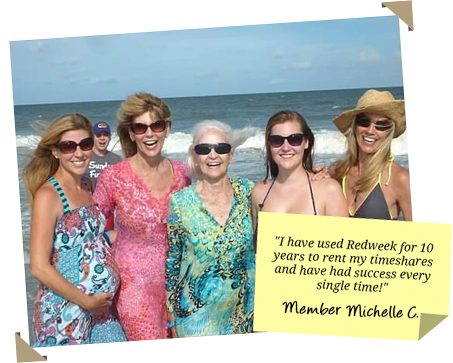In a common points program, you sign up with the program by buying a subscription. You then receive a defined variety of points every year, with the number of points you receive established by the terms of the membership you purchase. You can then exchange these points for lodgings at the resorts that participate in the points program.
As with holiday clubs, the majority of points programs provide multiple what are timeshare maintenance fees resorts in which you can reserve weeks. The number of points required to get accommodations will typically vary with the accommodations selected. Elements influencing the number of points needed for your asked for accommodations include: The popularity of the resort The size of the accommodations The number of nights of tenancy The specific nights asked for (weekend and vacation nights typically need more points per night than do mid-week nights) The season of the year.
Many points programs will allow you to collect points over two or more years, so that you can trade to a bigger unit or more popular resort if you want to take a trip less frequently - how to cancel wyndham timeshare 2018. Some points programs will also permit you to occupy a resort for less than a full week at a decreased variety of required points.
I anticipate that other points programs will include similar features in the future. I also anticipate that frequent traveler programs operated by travel business such as airline companies and hotel chains will develop tie-ins with timeshare points programs to additional extend point generation and redemption chances. Points programs can be linked to a deeded ownership or can be a direct "buy-in" not connected to ownership of a particular week.
Points programs can be run by a program operator, or can be part of a getaway club timesharing program. Just recently, some exchange business (see Lesson 3 for a discussion of exchange companies) have started establishing points programs. An important worry about points programs is the long-term "value" of your points in booking accommodations.
If you own or are considering acquiring into a points system, you should inspect the program files carefully to identify what defenses you might have versus such losses in exchange power. Points programs and right-to-use resort homes have numerous typical functions, and the majority of the cautions formerly explained for right-to-use projects likewise use to points programs.
How To Sell Marriott Timeshare Can Be Fun For Anyone
Through such exchanges, you can obtain timeshare accommodations in preferable getaway places throughout the world. Exchanging also allows you to holiday at various times of the year, even utilizing a set week. The simplest exchange method is to find a timeshare owner who has an interest in exchanging his/her week for your week.
Another exchange option takes place when your timeshare ownership belongs to an exchange program that includes multiple resorts in different locations. In hilton head timeshare cancellation these arrangements, you can exchange your week for a week at another resort within the group. Many timeshare management business that run resorts in different locations provide this type of exchange service as part of their management services.
The most typical exchange technique is through a timeshare exchange business. To do this, you "deposit" your week with the exchange company. As other owners deposit their weeks (and as resorts deposit unsold weeks with the exchange business), the exchange company develops a stock of weeks that are available for exchanges (what is the best timeshare).
The exchange company hence works as a clearinghouse for individuals making exchanges. Keep in mind that the owner of the week you exchange for will nearly never ever be the person who gets the week you transfer (how to cancel westgate timeshare contract). The demand for many resorts varies seasonally. For instance, for people residing in the northern hemisphere, beach areas are popular in the summer season, whereas ski resorts are most popular during ski seasons.
This value affects both the rate of the system and the quality and kinds of exchanges you can make with the timeshare system. Resort Condominiums International (RCI) and Interval International (II), the 2 biggest exchange business, both divide weeks into 3 seasons, designated by color. For RCI, the designations are: Red: high demand season White: intermediate need season Blue: low demand season For II, the classifications are: Red: high demand wyndham timeshare presentation season Yellow: intermediate demand season Green: low need season The designations of seasons differ with each resort.

You ought to also know that even within these seasons, some weeks are in higher demand than others. For example, July and August weeks in southern California are generally in greater demand than are October weeks, even though all of the weeks are thought about high demand weeks. This indicates some red weeks are "redder" than other red weeks.
Fascination About How Can I Get Rid Of My Timeshare

These internal season or date designations frequently vary from RCI's and II's seasonal classifications for the very same resort. PULL has many other articles that supply advice and info on timesharing. Follow these links to the PULL Suggestions page and the PULL Timeshare FAQ page. Timeshare purchases can be divided into purchases of "new" units (bought from the resort developer) and "resale" units (purchased from any celebration besides the designer, such as an owner, a timeshare reselling representative, or a house owners association).
Designers are the entities that develop timeshare tasks by constructing the resort (or by transforming an existing resort) and offering the units to buyers. Developers run the gamut from inadequately financed, marginal operations to widely known travel and leisure corporations such as Marriott, Hilton and Disney. A lot of the early developers of timeshare tasks were minimal operations, and contributed to the bad image of timesharing.
Often the designer handles both project development and sales. Other times, the developer will schedule a company that focuses on timeshare sales to market and sell the intervals to purchasers. To intrigue people in going to a sales presentation, the sales program generally includes monetary incentives to people who participate in sales presentations.
Timeshare sales and marketing costs can easily be half or more of the developer's prices. You might be amazed that sales and marketing costs could be so high, however a good timeshare job can quickly support these expenses. For instance, consider that a developer can most likely construct and provide a twobedroom condo unit in a lot of parts of the United States for about $150,000 per system.
If the designer invests half this amount marketing the systems ($ 250,000 per system), the building and construction expense and sales and marketing expense together will total $400,000, leaving $100,000 net income per unit. As mentioned previously, a resale takes place when a non-developer owner of a timeshare week offers that week to another celebration.
Some resorts have on-site resale agents who accept listings from owners who wish to sell their timeshare systems. There are a range of reasons why individuals offer timeshares they own, including deaths, divorces, monetary emergencies, modifications in individual vacation practices, and, sadly, individuals discovering that timesharing does not work for their way of life.